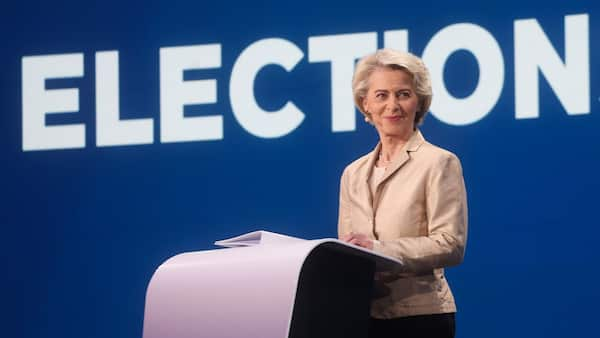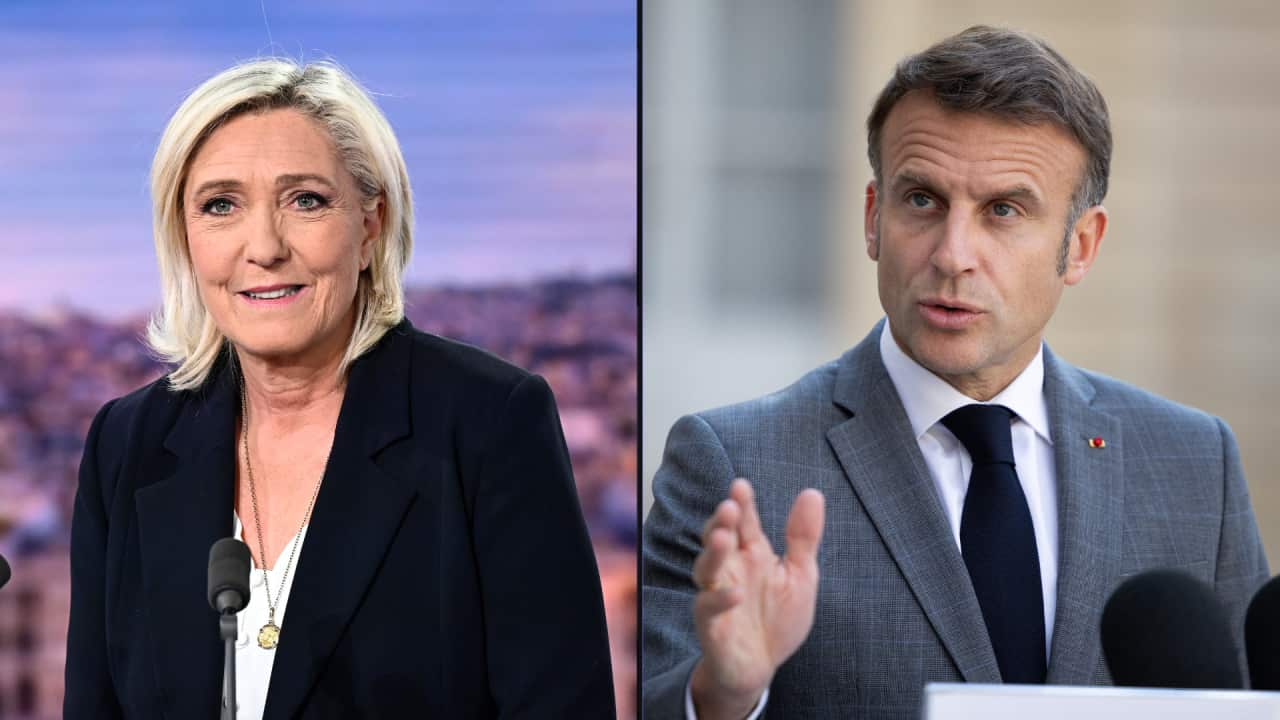Key Points
- French President Emmanuel Macron’s called snap elections after EU parliament elections earlier this month.
- The far-right RN party received more than double the votes of Macron’s Renaissance party in the EU elections.
- Most polls show RN is on course to win the largest number of seats in France’s lower house.
A divided France braced Saturday for high-stakes parliamentary elections that could see the anti-immigrant and eurosceptic party of Marine Le Pen sweep to power in a historic first.
The candidates ended their frantic three-week campaigns at midnight Friday, with political activity banned until the first round of voting on Sunday.
On Saturday, voting begins in France’s overseas territories that span the globe, with residents of the tiny archipelago of Saint Pierre and Miquelon, located off the coast of Canada, casting their ballots from 10:00 GMT (8pm AEST).
They will be followed by voters in France’s islands in the Caribbean and the South American territory of French Guiana. Voting will later start in territories in the Pacific and then in the Indian Ocean before it gets underway on the mainland on Sunday.
Most polls show that Le Pen’s far-right National Rally (RN) is on course to win the largest number of seats in the 577-member National Assembly, parliament’s lower house, although it remains unclear if the party will secure an outright majority.
A high turnout is predicted and final opinion polls have given the RN between 35 per cent and 37 per cent of the vote, against 27.5-29 per cent for the left-wing New Popular Front alliance and 20-21 per cent for President Emmanuel Macron’s centrist camp.
On Monday, Macron plans to convene a government meeting to decide the further course of action ahead of the second round of voting on 7 July, government sources told AFP.
France is heading for a year of political chaos and confusion with a hung Assembly, said Mujtaba Rahman, Europe head at Eurasia Group, a risk consultancy.
“There is no precedent in recent French politics for such an impasse,” Rahman said.
Macron’s decision to call snap elections after the RN’s victory in European Parliament elections this month stunned friends and foes and sparked uncertainty in Europe’s second-biggest economy.
The Paris stock exchange suffered its biggest monthly decline in two years in June, dropping by 6.4 per cent, according to figures released on Friday.
In an editorial, French daily Le Monde said it was time to mobilise against the far right.
“Yielding any power to it means nothing less than taking the risk of seeing everything that has been built and conquered over more than two and a half centuries gradually being undone,” it said.
Some 49 million French are eligible to vote.
‘The fear, the dread’
Brice Teinturier, head of the Ipsos polling firm, said there were two tendencies coming out of the campaign.
“One is a dynamic of hope” with left-wing and RN supporters believing that “there can be a change”.
But Teinturier also highlighted “the negative politicisation, the fear, the dread caused” by the RN and the hard-left France Unbowed party which is part of the left-wing coalition.
Macron apparently hoped to catch political opponents off guard by presenting voters with a crucial choice about France’s future, but observers say he might have lost his gamble.
Many have pointed to a spike in hate speech, intolerance and racism during the charged campaign. A video of two RN supporters verbally assaulting a black woman has gone viral in recent days.
Speaking in Brussels late Thursday, Macron deplored “racism or antisemitism”.
Support for Macron’s centrist camp collapsed during the campaign, while left-wing parties put their bickering aside to form the New Popular Front, in a nod to an alliance founded in 1936 to combat fascism.
Support for the far right has surged, with analysts saying Le Pen’s years-long efforts to clean up the image of a party co-founded by a former Waffen SS member have paid off.
“Victory is within our grasp, so let’s seize this historic opportunity and get out and vote!” Le Pen wrote on X on Friday, vowing to bolster purchasing power and “curb insecurity and immigration”.
A tense ‘cohabitation’ awaits if far right wins majority
Under Macron, France has been one of Ukraine’s main Western backers since Russia invaded in 2022.
But Le Pen and her 28-year-old lieutenant, party chief Jordan Bardella, have said they would scale down French support for Ukraine, by ruling out the deployment of ground troops and long-range missiles.
If the far right obtains an absolute majority, Bardella could become prime minister in a tense “cohabitation” with Macron.
His party’s path to victory could be blocked if the left and centre-right join forces against the RN in the second round.
A defiant Macron has stood by his decision to call the elections while warning voters that a win by the far right or hard left could spark a “civil war” in France.
He has insisted he will serve out the remainder of his second term until 2027, no matter which party wins.

